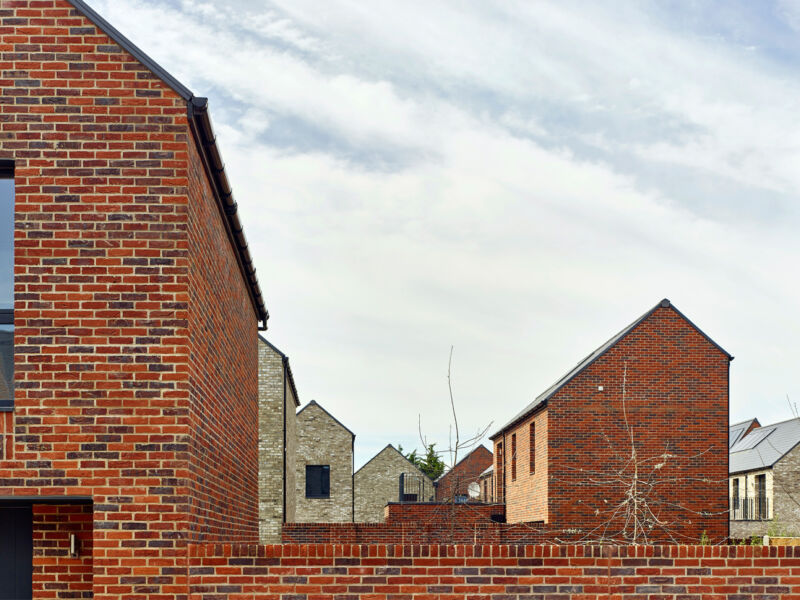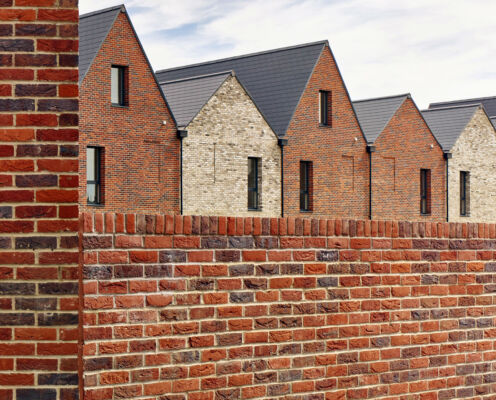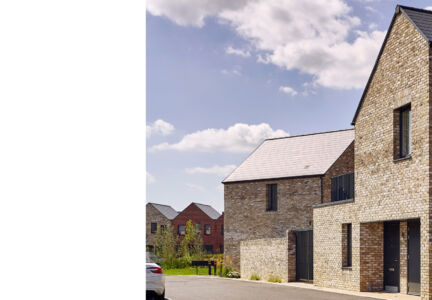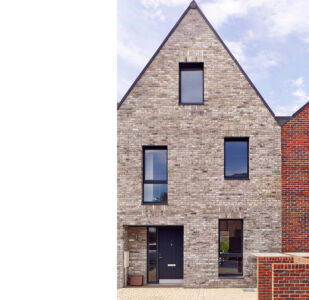A NEW MODEL FOR SUBURBAN HOUSING ESTATES?ST CHAD'S, TILBURY IN ESSEX.

St Chads in Tilbury, Essex, is the first project that Thurrock Council has undertaken through Gloriana, a wholly-owned company it has set up to deliver new homes. The development is intended to contribute to the council’s aims of stimulating regeneration as well as providing new, subsidised housing in Tilbury. The town had suffered significant stagnation and a lack of investment that arose from the expansion of air travel, car ownership, containerisation and the opening of the Dartford Tunnel in 1963, all of which contributed to its declining role as a ferry terminal.
The 128 new homes were designed from the outset to be ‘tenure blind’ to allow the development to be 100 per cent affordable by people on the council’s waiting list, although the council also aimed to sell some houses at market rates to encourage a mixed-tenure community, and also to raise local aspirations and property values. The brownfield site, previously occupied by a secondary school (since rebuilt nearby), is on the north side of the town, where the adjacent marshland of the Thames flood plain provides good views and leisure opportunities.
Bell Phillips Architects’ competition-winning proposal sought to imbue the development with a sense of place by connecting physically and spiritually with the docks. This was manifest in a grid pattern of streets that connects with the existing mid-twentieth century street pattern; a sequence of public spaces arranged diagonally through the street layout, connecting existing public spaces with the countryside; and a diagonal swathe of green space angled to focus on the distant views of the cranes at Tilbury Docks.
Within this layout three typologies were developed – avenue, street and mews – each with its own character and dimensions. One of the two avenues is a linear green park that provides amenity spaces as well as swales – an integral part of the sustainable drainage strategy for this low-lying area of the Thames estuary.
There are two key house types: townhouse and courtyard house. The former, on 18-metre-wide streets, are terraced houses of two or three storeys with private rear gardens. The latter, on 11-metre-wide streets, face sideways onto individual courtyard gardens. Together the two types form an urban block, with a terrace of each located back-to-back in a compact, high-density plan, an arrangement made possible by angling rear windows at 90 degrees to each other to avoid privacy issues.
The houses are constructed in red and white brick, with pitched roofs and crisp detailing that gives the development a familiar yet modern character, and potentially suggests a new model for the suburban housing estate.





